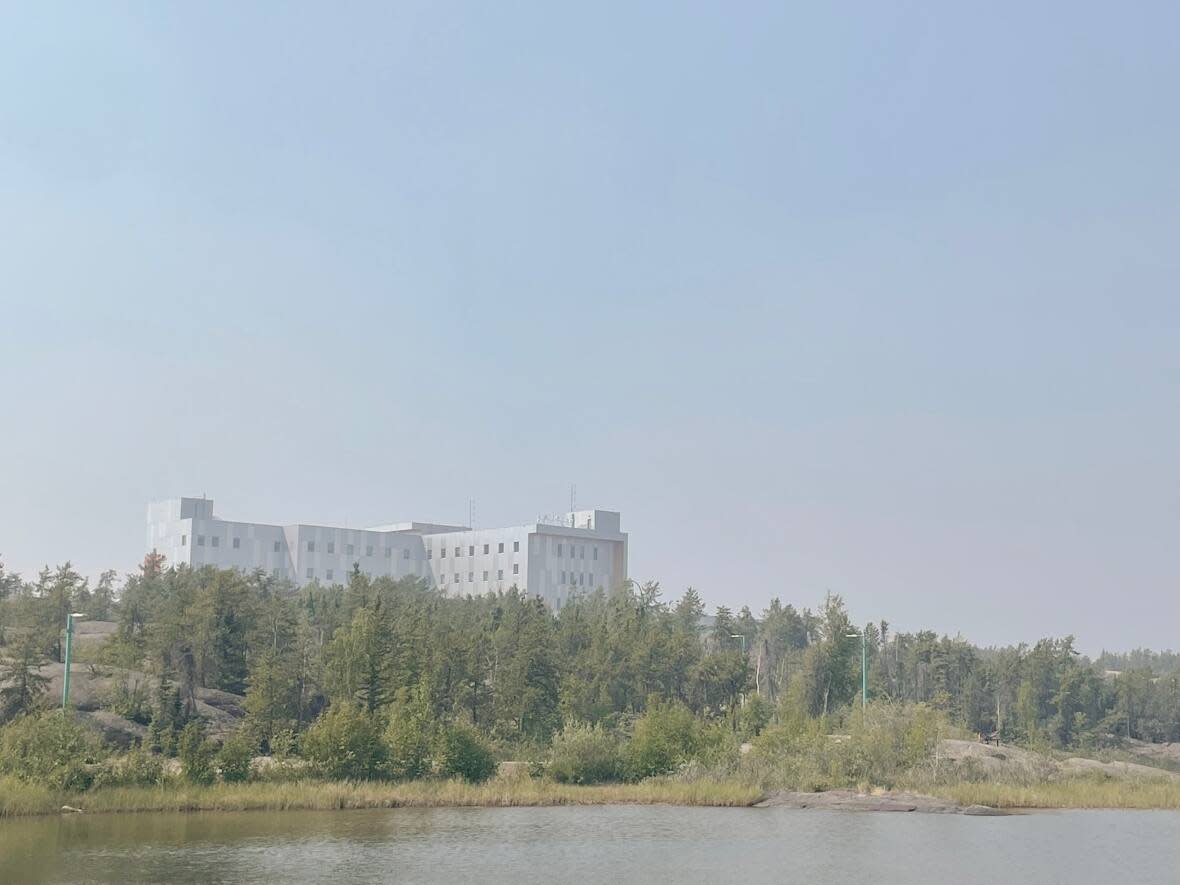Wildfire smoke alert issued for Yellowknife area, most N.W.T. communities to be affected in days ahead

Environment Canada says wildfire smoke is causing poor air quality and reduced visibility in the Yellowknife area.
That's because of high concentrations of fine particles in the air, according to a special air quality statement issued Tuesday afternoon.
The statement says wildfire smoke can cause visibility and air quality to fluctuate over short distances, and vary from hour to hour.
Some people may experience symptoms such as coughing, throat irritation, headaches or shortness of breath, the statement says. Children, seniors and those with cardiovascular or lung diseases like asthma are at greater risk for symptoms.
"If you, or someone in your care, develops symptoms, reduce strenuous outdoor activities wherever possible until the air quality improves," reads the statement.
The agency also advises that people ease up on strenuous physical activity if their breathing becomes difficult or uncomfortable.
If symptoms like an irritated nose, throat or eyes, or shortness of breath or other respiratory symptoms, emerge, "take action to reduce your exposure to smoke," says the statement.
It also recommends that people feeling unwell contact their healthcare provider.
Environment Canada says wildfire smoke is a "constantly-changing mixture of particles and gases," and that it includes many chemicals that can be harmful to human health.
Smoke for most N.W.T. communities to come
The Northwest Territories fire division also warned that with over 500 fires burning in Yukon, N.W.T. and Alaska, along with more burning in southern Canada, that most N.W.T. communities will experience wildfire smoke over the coming days and possibly weeks.
In a news release Tuesday evening, it said the smoke could range from mild levels to "very high levels depending on where you are."
It's also "likely" that ash could be mingled with the smoke.
The territory is still contending with over 50 active wildfires, including one about 40 kilometres from Wrigley, which continues to be fought.
The release says no communities are threatened right now, and there is no need for alarm.


